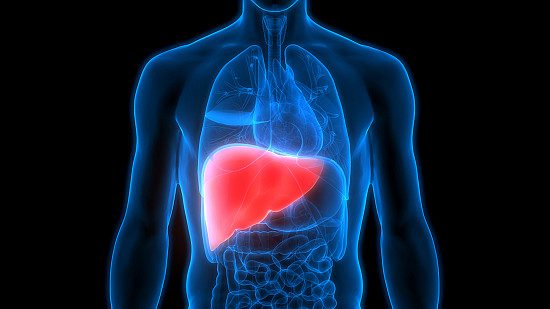The liver is a vital organ responsible for numerous functions in the human body, including detoxification, protein synthesis, and the production of chemicals necessary for digestion. It is incredibly resilient and capable of regenerating itself, but it is not impervious to damage. The use of anabolic-androgenic steroids (AAS) can have significant implications for liver health, as these substances are metabolized by the liver and can lead to toxic effects.
Steroids are used for various medical applications but are also commonly misused for athletic performance enhancement and bodybuilding. When steroids are taken in doses higher than the amount prescribed for medical reasons, they can put undue stress on the liver. Understanding the relationship between steroid use and liver function is crucial for maintaining organ health and overall wellness. Different steroids have different levels of hepatotoxicity, and the duration and amount of steroid use can influence the degree of liver damage.
Regular monitoring and adopting strategies to manage liver health can minimize the risks associated with steroid use. Considering long-term effects and exploring alternatives are essential for individuals considering or currently using steroids. Professional guidance and a thorough comprehension of the potential consequences on liver health are indispensable.
Quick Summary
- Steroid use can lead to significant liver damage due to the organ’s role in metabolizing these compounds.
- Different types of steroids have varying levels of risk for hepatotoxicity.
- Strategies for liver health management and understanding long-term consequences are vital for steroid users.
Understanding Steroids and Liver Function

This section elucidates the impact of steroid usage on liver function, detailing the nature of steroids, the role of the liver in the body, and the interaction between the two.
Steroids Overview
Steroids are a large class of bioactive compounds that include both corticosteroids, which are often used therapeutically to reduce inflammation and immune responses, and anabolic steroids, used to enhance muscle building. Anabolic steroids, also known as anabolic-androgenic steroids (AAS), are synthetic derivatives of the hormone testosterone. While corticosteroids are prescribed for a variety of health issues, anabolic steroids are both legally prescribed for certain conditions and illicitly used in the context of bodybuilding and sports performance enhancement.
Liver Physiology and Function
The liver is a critical organ involved in metabolic processes, detoxification, and the synthesis of proteins necessary for blood clotting. It has a unique capacity to regenerate, which is vital given its role in filtering blood and breaking down substances, including medications and toxins. The liver metabolizes drugs and other compounds through enzymes, especially within the hepatic microsomal system, where biotransformation into water-soluble substances occurs for excretion.
Interactions between Steroids and Liver
Steroids, particularly anabolic steroids, interact with the liver in ways that can lead to hepatotoxicity – liver injury caused by chemicals. The severity of this hepatotoxicity can range from transient changes in liver enzyme levels to more serious liver damage. Anabolic steroids are mostly metabolized in the liver and can lead to cholestatic liver injury, characterized by jaundice and elevated liver enzymes. Prolonged use of high doses of oral anabolic steroids can lead to adverse effects such as the development of liver tumors, including hepatic adenomas, which have the potential to rupture and cause internal bleeding.
References
Impact of Steroids on Liver Health

Anabolic steroids can lead to significant liver damage and several liver diseases. Steroid abuse often causes a condition known as toxicant-associated fatty liver disease, and elevations in liver enzymes are a common indication of hepatotoxicity.
Mechanisms of Steroid-Induced Liver Injury
Anabolic steroids can cause liver injury through several mechanisms. One of the primary pathways is through the induction of cholestasis. This condition is characterized by a decrease in bile flow due to the drugs’ effects on the bile salt export pump, leading to bile acid accumulation and liver cell damage. Steroids are metabolized in the liver, which can lead to cellular stress and activate other injurious processes, like oxidative stress and lipid peroxidation.
- Key metabolic pathways affected:
- Disruption of normal bile acid metabolism
- Induction of oxidative stress on hepatocytes
- Lipid peroxidation leading to cellular injury
Clinical Manifestations of Hepatotoxicity
Clinical manifestations of steroid-induced liver damage may vary. Elevations in liver enzymes, such as alanine aminotransferase (ALT), are often the first laboratory sign of possible liver injury. ALT is a marker of hepatocellular injury which may indicate ongoing inflammation or damage within the liver. In severe cases, acute liver failure may occur, which is a life-threatening condition requiring immediate medical attention.
- Common clinical signs include:
- Elevated alanine aminotransferase (ALT) levels
- Jaundice and abdominal pain
- Unintended weight loss and fatigue
- Indicators of acute liver failure may include coagulopathy and encephalopathy
Steroid Types and Associated Risks

Steroids are classified into different types, each carrying unique risks to liver health. Understanding these risks involves looking at the structural and functional nuances of each steroid class.
Anabolic Androgenic Steroids
Anabolic androgenic steroids (AAS), synthetic derivatives of testosterone, are used to enhance muscle mass and athletic performance. Liver toxicity is a serious health concern associated with their non-medical use. The risk is particularly high with oral AAS due to the first-pass metabolism effect, which necessitates higher doses for effectiveness and can lead to hepatic strain or damage.
- Hepatotoxicity: Associated with oral alkylated steroids.
- Cholestasis: Impairment of bile flow that can lead to jaundice.
- Hepatic Tumors: Benign and malignant tumors may result from extended AAS abuse.
Corticosteroids and Their Usage
Corticosteroids such as cortisone and hydrocortisone mimic cortisol, a hormone produced by the adrenal glands. They are used medically to reduce inflammation and suppress immune responses. Unlike AAS, corticosteroids typically pose a lower risk to liver health when used as prescribed. However, prolonged or high-dose use can still affect hepatic function.
- Stress on Liver Metabolism: High doses may burden the liver’s metabolic capacity.
- Potential for Steatosis: Fatty liver disease is possible with chronic use.
Differences in Hepatic Risks by Steroid Type
The differences between AAS and corticosteroids translate to varied hepatic risks:
- First-Pass Metabolism: Oral AAS undergo significant liver metabolism, leading to higher toxicity compared to corticosteroids which have less impact.
- Therapeutic Use: Corticosteroids are often prescribed, monitored, and used at therapeutic doses, thus reducing the risk of liver damage.
- Synthetic Compounds Variation: Different synthetic compounds within each steroid class further diversify the extent of hepatic risks involved.
References
- Anabolic Androgenic Steroids: https://www.ncbi.nlm.nih.gov/pmc/articles/PMC3897047/
- Corticosteroids and Liver Risks: https://www.ncbi.nlm.nih.gov/books/NBK547864/
- Hepatic Risks by Steroid Type: https://www.ncbi.nlm.nih.gov/pmc/articles/PMC3252215/
Managing Liver Health During Steroid Use

The relationship between steroid use and liver health is significant, with careful monitoring and preventive strategies being key to mitigating health risks.
Monitoring Liver Function
Individuals using steroids must have their liver function regularly tested through blood work. These tests typically measure serum bilirubin, alkaline phosphatase, and aminotransferases (ALT and AST) to determine any adverse effect on liver health. Dosage adjustments might be necessary if liver enzyme levels are elevated, indicating liver stress or damage.
- Dosage: The hepatic strain is often dose-dependent; lower doses pose less risk.
- Duration of action: Longer-acting steroids increase the interval between doses, potentially reducing hepatic stress.
- Other drugs: Concurrent use of other medications can exacerbate liver strain. Thus, a thorough medication review is crucial.
Preventing and Addressing Liver Complications
To minimize liver complications, users of steroids should:
- Opt for low-dose regimens when possible to lessen hepatic load.
- Incorporate breaks or “off cycles” to allow liver recovery.
- Utilize other drugs cautiously to avoid harmful interactions that can increase liver stress.
- Seek immediate medical attention for signs of liver dysfunction such as jaundice, abdominal pain, or unusual fatigue.
In severe cases, liver transplantation might be the only recourse. However, preventative measures and early intervention can significantly reduce the need for such drastic treatments. Corticosteroid therapy may also be involved in managing certain complications, a distinctive class of steroids with different risk profiles.
Long-Term Considerations and Alternatives

When considering the use of steroids, it is important to weigh the potential long-term outcomes on liver health and to be aware of available alternative options that may pose less risk.
Possible Long-Term Outcomes
The use of anabolic steroids has been linked with a variety of long-term health outcomes. Paramount among these is cirrhosis, a condition characterized by scarring of the liver that can impair its function. This scarring is progressive and can lead to liver failure, a serious condition that may necessitate a liver transplant. Mortality rates associated with liver complications from steroid use can be significant, and patients with cirrhosis or liver failure face a reduced life expectancy. In assessing the risks, one must consider these serious health implications.
- Cirrhosis: May lead to complications such as portal hypertension, varices, and is a risk factor for liver cancer.
- Liver Failure: Could necessitate a liver transplant, with inherent risks of surgery and lifelong immunosuppression.
- Mortality: Increased risk due to complications from cirrhosis or liver failure.
Alternative Treatments and Supplements
Individuals seeking to enhance performance or muscle growth might consider alternative treatments and over-the-counter supplements that support liver health and muscle growth without the damaging effects of steroids. These alternatives include whey protein, creatine, and branched-chain amino acids (BCAAs). It is crucial that individuals consult healthcare providers before beginning any new supplement regimen.
- Whey Protein: Can aid in muscle repair and growth.
- Creatine: Helps improve strength and muscle mass.
- BCAAs: Assist with muscle recovery and growth.
Additionally, natural liver support supplements like milk thistle, which is thought to have hepatoprotective properties, may also be beneficial. Users must ensure that these supplements are obtained from reputable sources to avoid adulterants that might harm liver health.
Frequently Asked Questions

When discussing liver health in the context of steroid use, pertinent questions arise. Insight into symptom recognition, steroid effects on liver function, variability in hepatotoxicity among steroids, risk differences between injectables and orals, protective measures, and a comparative risk analysis with alcohol can be foundational to understanding the impact of anabolic steroids on the liver.
What are the symptoms of liver damage caused by steroid use?
Symptoms may include jaundice, which is characterized by yellowing of the skin and eyes, abdominal pain, particularly in the liver area, and unusual fatigue. These symptoms warrant immediate medical attention.
How do anabolic steroids affect liver function?
Anabolic steroids can lead to an increase in liver enzymes, which is an indication of liver stress, and may cause a condition called cholestasis where bile flow is impeded, increasing the risk of liver damage.
Are there certain steroids known to be more hepatotoxic than others?
Oral steroids, particularly those that are 17-alpha-alkylated, such as methandrostenolone and oxymetholone, are considered more hepatotoxic compared to their non-alkylated counterparts.
Can injectable steroids also lead to liver damage?
Although injectable steroids are generally believed to have less potential for liver damage, certain types such as trenbolone acetate can still pose risks and should be used cautiously.
What measures can be taken to protect the liver when using steroids?
Users can protect their liver by using liver support supplements, avoiding the concurrent intake of other hepatotoxic substances, adhering to recommended dosages, and undergoing regular liver function tests.
Which is more detrimental to liver health: alcohol consumption or steroid use?
Both alcohol and steroids can be harmful to liver health, but the level of risk typically depends on the amount and duration of use. Chronic, heavy alcohol use is widely recognized for its potential to cause significant liver damage. Comparatively, the extent of liver harm from steroid use often varies based on the type of steroid, dosage, duration of use, and individual susceptibility.
Details
https://www.ncbi.nlm.nih.gov/pmc/articles/PMC3845947/
Dr. Grant Fourie, a specialist in male hormones, is based in Cape Town, South Africa. He provides comprehensive treatments for conditions related to low testosterone, such as erectile dysfunction, fatigue, and mood changes. His methods include hormone replacement therapy and other modern treatment options.
Contact me via email or phone to book personal appointment in my clinic: The Village Square, Cape Town - South Africa



